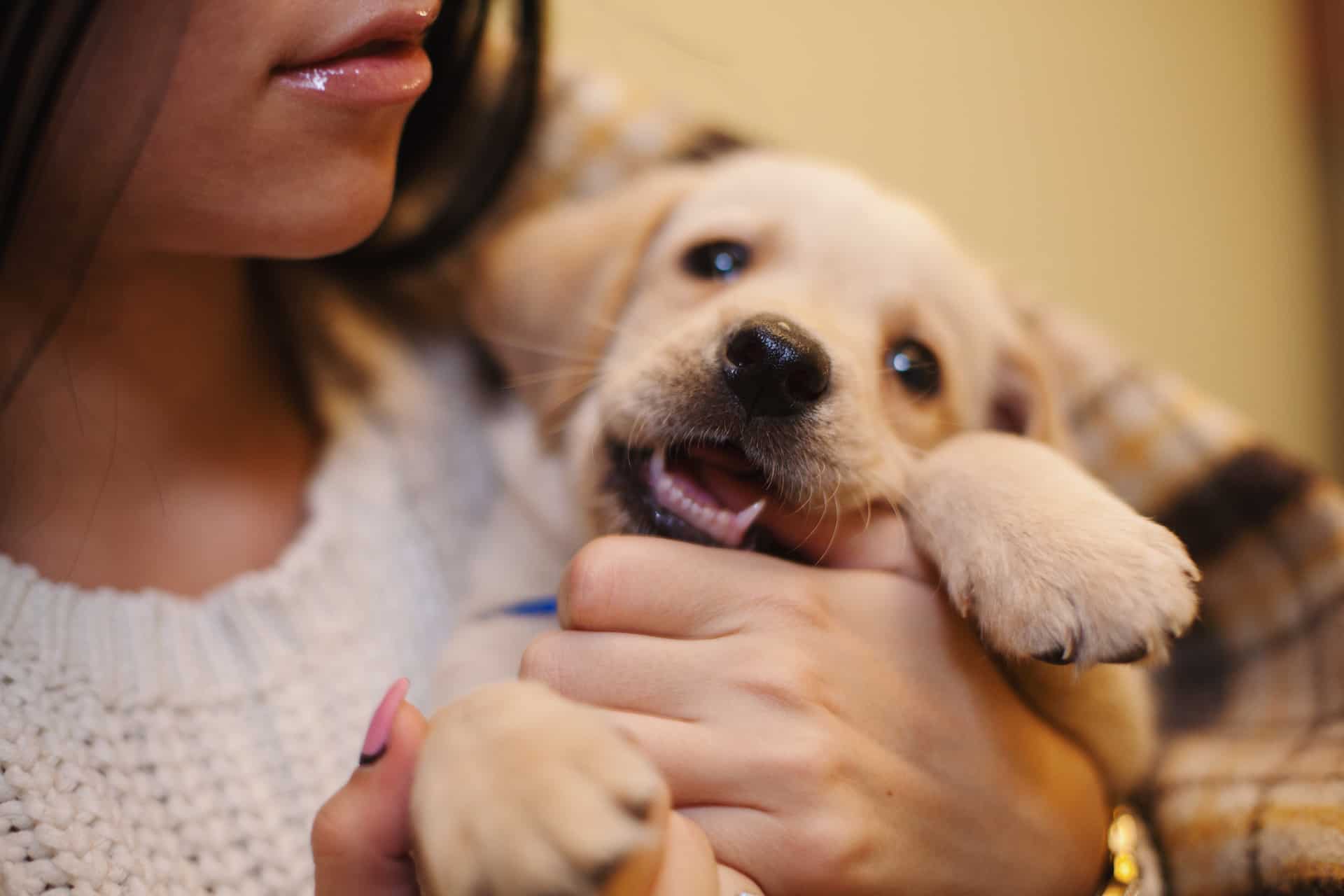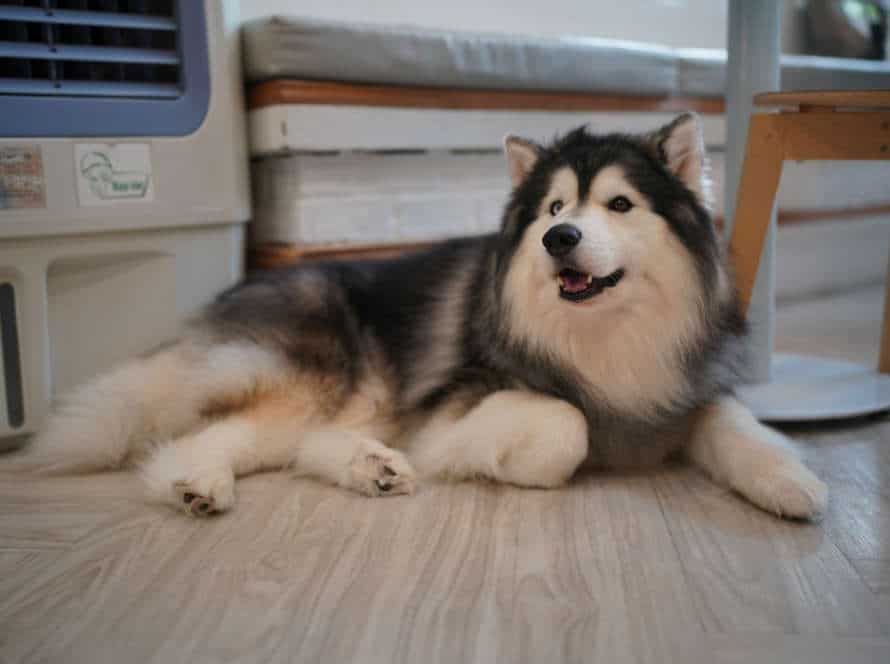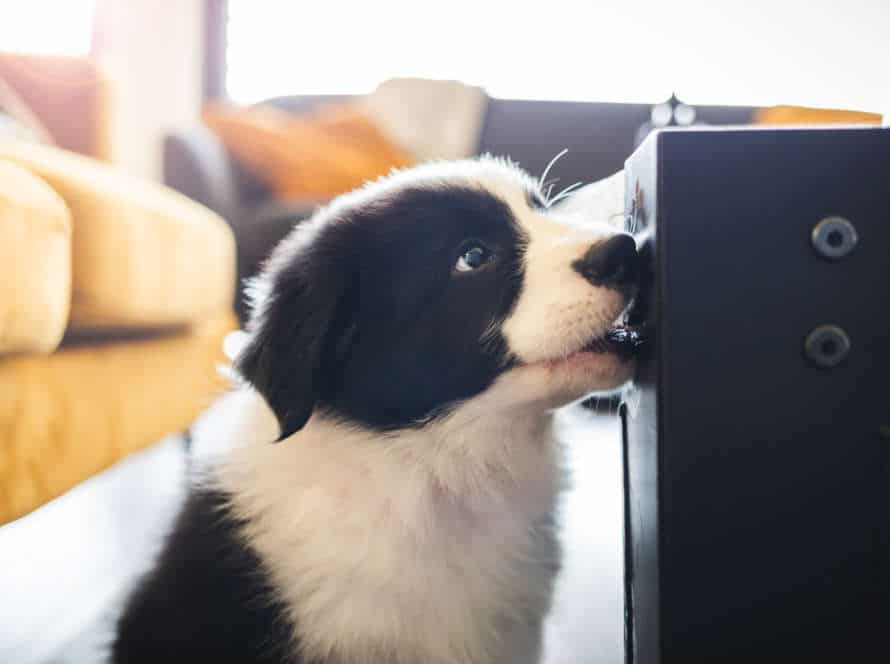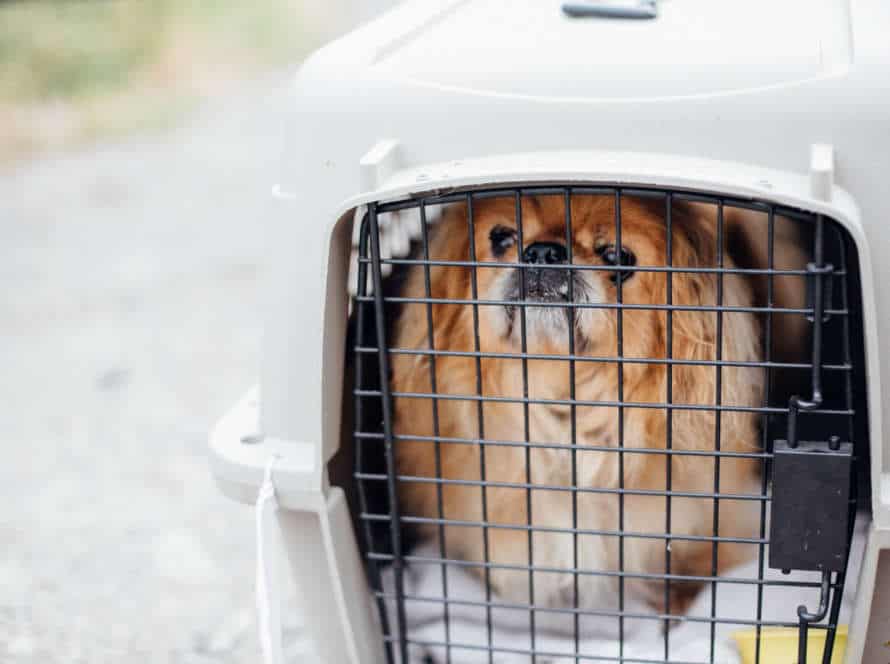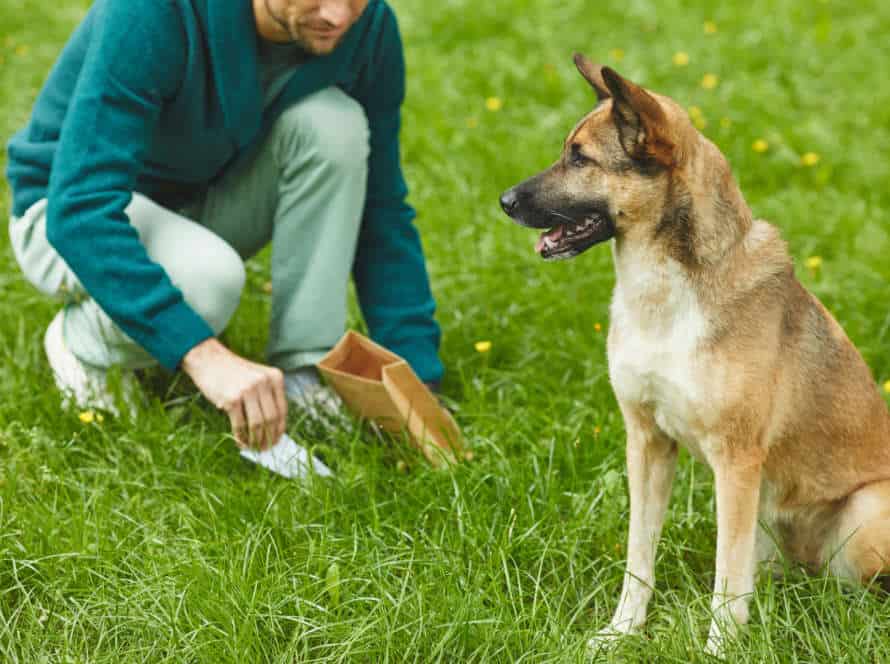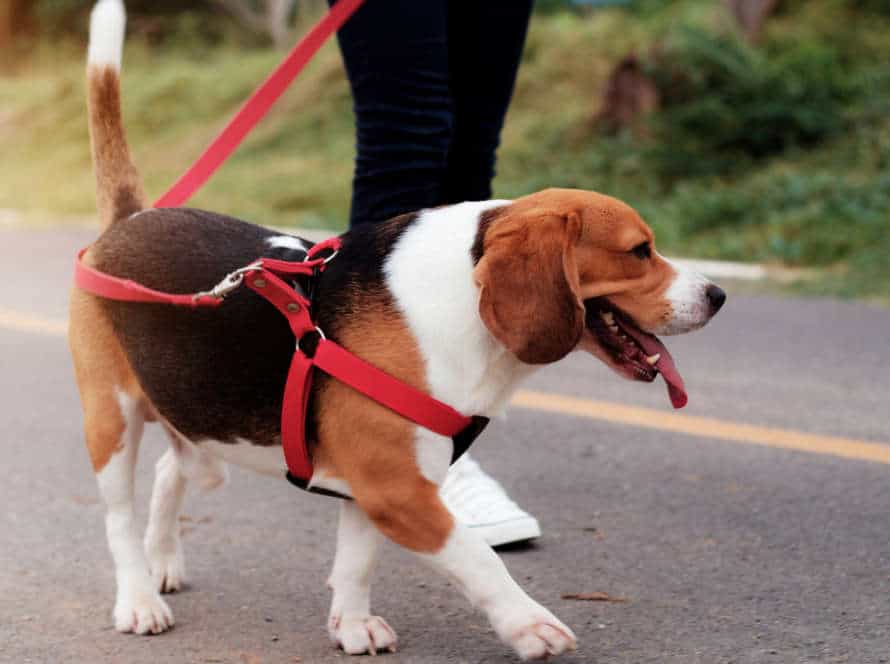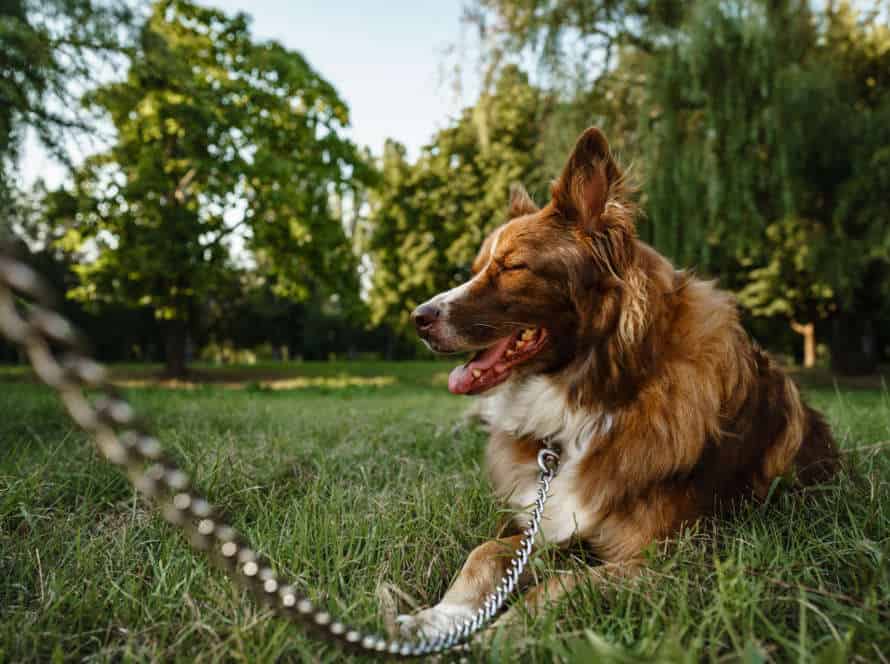Understanding Why Puppies Bite
Why do puppies bite? This is important to know! It could be due to teething, exploring, or even playing. Understanding the reason helps us redirect their behavior in the best way. Let’s explore further and figure out why puppies bite.
Exploring the natural instincts of puppies
Puppies explore their surroundings with their mouth, which often leads to biting. It is natural, yet it’s good to redirect this behavior. Here’s how:
- Redirect the pup’s attention with a toy or snack when they start biting.
- Reward their good behavior with positive reinforcement when they play with the toy or treat.
- Teach them a command like “leave it” or “off” when they get too rough.
- Avoid rough games like wrestling or tug-of-war that could encourage biting.
- Make sure the puppy gets enough exercise and stimulation each day.
- Consistency and patience are key to successful redirection.
Recognizing when puppy biting becomes problematic
Puppies like to nip and bite when exploring and playing. But, if they bite too hard or aggressively, it can hurt people and animals. Here are the signs that it’s become a problem:
- Bites that are painful and leave marks or bruises.
- Biting excessively and at the wrong times.
- Growling, barking or acting aggressively while biting.
To help your puppy stop, do these things:
- Consistently and quickly react to every bite with a firm “no” or “ouch”.
- Give your puppy chew toys or bones to bite on instead.
- Reward good behavior with treats and praise.
If the biting doesn’t get better, get professional help.
Understanding the importance of redirecting biting behavior
It’s essential to understand the significance of changing puppy biting behavior to stop them from becoming aggressive later on. Here are some steps:
- When they bite, say “NO” in a serious voice. Showing they can’t do that.
- Immediately stop playing. Showing they get nothing if they continue this behavior.
- Give ’em chew toys, bones and other safe items. Redirecting their attention.
- Reward them for good behavior. Avoid punishing for biting. It may lead to more aggression.
Changing puppy biting behavior is essential for strong and healthy relationships with owners.
Preparing for Redirecting Puppy Biting
If your pup has begun munching, steps must be taken to reroute the behavior. This assists your puppy in learning to play more tenderly and to comprehend the boundaries of acceptable behavior. However, before you can start rerouting, preparing is essential to make certain you and your pup are ready. This guide will give you a jump start.
Obtaining the necessary supplies
Before you try to stop puppy biting, you need a few things that can help. Here are the essentials:
- Bitter Apple spray. It has a taste puppies don’t like, so it stops them from biting shoes, furniture, and clothes.
- Chew toys. They give your pup something to bite that’s okay.
- Treats. They reward good behavior and help stop biting.
- Leash. It controls and guides your pup during training.
Get these supplies ready before you start redirecting puppy biting!
Identifying appropriate redirection techniques
Redirecting a pup’s biting? It’s key! For its health and the safety of others. But use the right techniques for success. Here’re some to think about:
- Trade: Give it a chew toy, treat, or something else to chew on instead of your hand or furniture.
- Diversion: Play with it – tug-o-war, fetch – anything to make it forget about biting.
- Respond firmly: Say “No” or “ouch” when it bites. Make sure it knows that biting isn’t okay. Give it positive reinforcement when it stops.
Using positive redirection techniques will help your pup understand what’s okay and what’s not. It’ll grow into a happy, well-behaved adult dog.
Creating a redirection plan
Redirecting puppy biting is a must! To guarantee your pup recognizes that biting is not okay, and to give them an alternate behavior to do, a redirection plan is needed.
Here’s how to make one:
- Notice the trigger – Look at your puppy’s conduct and work out what sets off the biting.
- Get an alternative – Pick an alternate behavior your pup can do when triggered, like a toy or treat.
- Learn the alternative – Teach your pup the alternate behavior through positive reinforcement.
- Put the plan into action – Follow the redirection plan constantly & divert your pup’s conduct whenever they start biting.
Consistency is key! With patience & positive reinforcement, your pup will learn to redirect their biting behavior.
Redirection Techniques for Puppy Biting
Puppy biting is an issue all pup owners face. But, there are certain methods that can be used to redirect the pup’s biting. These methods are humane, easy and effective. Let’s discuss a handful of popular redirection techniques for puppy biting. Also, here’s a step-by-step guide to help you get started.
Here are some popular redirection techniques for puppy biting:
- Offer a distraction: Offer a toy or treat to redirect the puppy’s attention and focus away from biting.
- Use positive reinforcement: Praise and reward the puppy when they stop biting.
- Withdraw yourself: If the puppy keeps biting despite your attempts to redirect them, withdraw your attention and remove yourself from the situation. This teaches the puppy that biting leads to lack of attention and fun.
- Use verbal cues: Use a firm “no” or “stop” to communicate to the puppy that their behavior is unacceptable.
Positive Reinforcement Training
Positive reinforcement training can help to stop puppy biting. Here’s a how-to guide:
- “Ouch!” or “No!” loudly when your pup bites.
- Offer them a chew toy or treat instead.
- Reward them with treats and praise when they take the toy or treat.
- Be consistent with redirection each time they try to bite.
Note: Redirection might not always work. Consult a professional trainer or behaviorist if that’s the case. They can help to identify any underlying causes, such as teething or anxiety.
Distracting with Toys and Treats
If your pup is biting, you may be wondering what to do. Distract them with toys and treats! Here’s how:
- When they start biting, stop playing.
- Give them a bite-safe toy or chew to focus on healthy habits.
- Praise them for taking it.
- If still biting, try a taste-deterrent spray or a training class.
Pro Tip: Always watch your pup when playing! This prevents them from swallowing something bad.
Redirection Through Playtime and Exercise
Redirection through playtime and exercise is a great way to stop puppy biting. Puppies explore the world with their mouths and we must teach them that biting is not allowed.
Here’s how:
- Whenever your pup bites or tries to bite, say a firm ‘no’ and remove your body part from their reach.
- Distract them with a chew toy or treat.
- Engage in playtime or exercise, like fetch or tug-of-war.
- Do this every time they bite.
- Be consistent and your pup will learn that playing and exercising are more fun and rewarding than biting.
Consistency and Reinforcement
To stop a puppy from biting, consistency and reinforcement are key. You must remain consistent in how you respond to their biting. Plus, reward them any time they don’t bite! This consistency teaches them the right behavior and shows them what’s expected.
To help you out, here are the steps for redirecting puppy biting and providing positive reinforcement:
Creating a Consistent Routine
Creating a consistent routine is essential for redirecting puppy biting. Consistency is the key for making sure your pup gets the boundaries and rules of appropriate conduct. Here’s how to make it happen:
- Set a regular feeding and exercising schedule for your pup.
- Designate a chewing area with lots of toys. Encourage him to use it.
- Using the same verbal commands when your pup bites, like “No” or “Off“.
- Redirecting pup’s biting to an acceptable object, like a chew toy.
- Reward and praise your pup for good behaviour, like using the designated chewing area or abstaining from biting.
With steady reinforcement, your puppy will grasp what is expected of them and you can successfully redirect their biting behaviour.
Reinforcing Positive Behavior
Reinforcing positive behavior is the secret for redirecting your pup’s biting. Consistency plus reinforcement go together for best outcomes. Here’s how to reinforce good behavior in your puppy:
- Reward your puppy when they’re doing something nice, like playing calmly or sitting quietly. Give treats or compliments to encourage the behavior.
- Make sure everyone in the family is on the same page with training. This avoids any confusion for your pup about what’s okay and what’s not.
- Divert your pup’s biting behavior by giving them something suitable to chew, such as a toy or bone.
- Utilize positive reinforcement methods like clicker training or praising to encourage good behavior.
By employing positive reinforcement methods, being consistent with training, and redirecting inappropriate actions, you can help your puppy learn and develop in a positive way.
Correcting and Redirecting Negative Behavior
Pups like to check out the world using their mouths. Biting is usually a way of being curious or playing. It’s important to stop this behavior early, to keep it from becoming a bad habit.
Here is a guide for that:
- Say “Ouch” or “No” in a strong voice when your pup bites.
- Replace your hand or body part with a chew toy or bone.
- If your pup still bites, take yourself away or put your pup in a time-out.
- Be consistent with redirection and reward good behavior with praise or treats.
Never hit or physically punish your pup for biting, as it can lead to fear and aggression. Consistency and reinforcement are key to redirecting negative behavior and teaching your pup to be a well-behaved adult dog.
Troubleshooting Common Issues
Puppy biting can be tough to manage. Hence, it is key to figure out the cause of the behavior. This guide will help you comprehend usual issues connected with redirecting puppy biting. Additionally, it offers instructions step-by-step on how to handle them.
Dealing with stubborn or aggressive behavior
Puppy biting can be a tough issue for dog owners. But, you can address it in a gentle & positive way. To do this, here are some steps:
- Interrupt the biting; use a verbal cue or sound.
- Offer your pup a toy or chew.
- Reward & praise them if they bite it instead.
- No punishment! That’ll just make it worse.
- Be consistent; repeat this process & be patient.
Redirecting puppy biting takes time & practice. But, with patience & consistency, you can teach your puppy good habits.
Addressing underlying medical issues
Challenging it is, to redirect puppy biting behavior. But, first medical issues must be addressed before starting a training program.
Here are some medical issues that could cause excessive puppy biting and how to address them:
- Teething? Puppies go through a teething phase. This can make them chew and bite more than usual. Give them plenty of chew toys to take their attention off it.
- Pain or discomfort? If they’re in pain or discomfort, they may lash out with biting. Take your puppy to the vet for a check-up to rule out health issues.
- Lack of socialization? Puppies without proper socialization can become anxious, fearful and aggressive. That leads to biting. Consider enrolling your puppy in a socialization class or consulting a pro dog trainer to address this.
Once medical issues have been addressed, you can start the training process to change your puppy’s biting behavior.
Seeking Professional Help when Necessary
Redirecting puppy biting is an important step in pup training. But if you’re having trouble, you may need to seek help. Here’s why and how:
- Professional dog trainers or behaviorists can diagnose and manage even difficult puppy issues.
- They provide personalized attention, based on your pup’s needs and personality.
- For a qualified trainer, ask your vet, friends or family, or search online for reviews and credentials.
- Do research on their experience, qualifications and training style. Make sure it fits your goals and values.
- With the help of a pro, you can reduce stress and create a positive bond between you and your pet. You can also better manage puppy biting and other behavioural issues.
Frequently Asked Questions
Q: Why do puppies bite?
A: Puppies bite as a natural part of their development and discovery of the world around them. They explore with their mouths, just as infants do with their hands.
Q: How can I redirect my puppy’s biting behavior?
A: Provide your puppy with appropriate chew toys and give positive reinforcement when they chew on them instead of biting you. Also, teach them the “leave it” command and redirect their attention to a toy or a game when they start biting.
Q: Is it okay to physically punish my puppy for biting?
A: No, physical punishment is not acceptable and can actually exacerbate the problem. This can lead to fear, anxiety, and aggression in your puppy.
Q: How long does it take to redirect a puppy’s biting behavior?
A: It can take several weeks or even months for your puppy to learn appropriate biting behavior. Consistency and positive reinforcement are key for successful redirection.
Q: What if my puppy continues to bite despite redirection efforts?
A: Seek guidance from a professional dog trainer or behaviorist to develop a training plan specific to your puppy’s needs.

